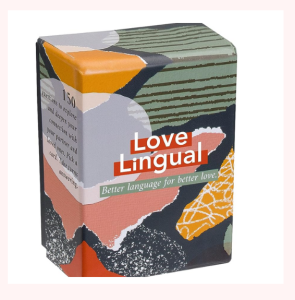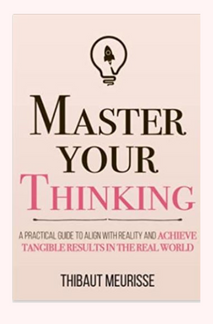10 Rules for Long Lasting Relationship
 A Long Lasting Relationship is a profound and meaningful connection that stands the test of time. It is built on a strong foundation of love, trust, and mutual respect.
A Long Lasting Relationship is a profound and meaningful connection that stands the test of time. It is built on a strong foundation of love, trust, and mutual respect.
Long-lasting relationships require dedication, commitment, and effort from both partners to navigate the ups and downs that inevitably arise. They are characterized by open and honest communication, effective conflict resolution, and a deep understanding of each other’s needs and desires. Such relationships provide a sense of security, support, and companionship, fostering personal growth and happiness. In this fast-paced world, where relationships often face challenges, cultivating a long-lasting relationship is a worthy pursuit that can bring immense joy, fulfillment, and lasting happiness.
It encompasses respectful and considerate behavior towards our partners, fostering healthy communication, and maintaining the overall harmony and well-being of the relationship. Relationship etiquette involves treating our partners with kindness, empathy, and respect, valuing their opinions, and actively listening to their needs and concerns.
It also includes practicing effective communication skills, such as expressing oneself clearly and honestly, while also being receptive to our partner’s perspectives. Honesty, trust, and integrity are essential aspects of relationship etiquette, as they form the foundation of a strong and lasting bond. Additionally, showing appreciation and gratitude for our partner’s efforts and expressing love and affection are crucial in nurturing a healthy and fulfilling relationship. Overall, relationship etiquette helps create a supportive, loving, and respectful environment where both partners feel valued, heard, and cherished.
.
.
Table of Contents
Tools to Build Self in Relationships
There are many ways to build a relationship but most importantly is feeling worthy, respected and loved. These are some of our favorite tools to get closer to becoming a more loved self
 Master Your Emotions
Master Your Emotions
This book showcases how to best deal, process and release negative emotions It gives you the power to navigate negative emotions.
- Over 100,ooo copies sold
- 31 simple coping strategies
- A formula to reprogram your mind
- How to make your emotions work FOR you.
- A free downloadable workbook, and much, much more!
.
 Couple Love Card Game
Couple Love Card Game
150 Conversation Starter Questions for Couples – Date Night & Relationship – Inspired by couples psychologists
- Designed to bring couples together
- 15 categories to make sure every topic of life is covered: Family, Intimacy, Couple, Individual, and Past & Future.
- Designed to fit together, like puzzle pieces, to propel you on an accelerated dating
.
 Personal Development
Personal Development
This book showcases and highlights the best ways to attract people and more importantly develop people skills
- How to change People
- Six ways to make people like you
- How to win people to your way of thinking
- Inspirational personal development guide
- Fundamental techniques in handling people
- Provides an authoritative program for developing the basic and essential people skills
 Master Your Beliefs
Master Your Beliefs
A Practical Guide to Stop Doubting Yourself and Build Unshakeable Confidence
- How to effectively to transform your life
- The five characteristics of belief (and why they matter)
- The specific Belief Formula that will bolster your confidence
- The #1 meta-belief that will change everything for you.
- The seven core beliefs that will transform your life
.
 Learning to Love Yourself
Learning to Love Yourself
You are beautifully and wonderfully made, just the way you are, never stop loving yourself
- How to Love Yourself Abundantly
- How to Love Your Feelings
- How to Love Your Body
- How to Clear Your Mind
.
 Master Your Thinking
Master Your Thinking
This book to best deal, process and release negative thoughts
- Why your current thinking is flawed
- 5 common biases that distort your thinking
- 11 powerful questions that will turn you into a super thinker
- The secrets to align yourself with reality and get tangible results
- How to create highly effective strategies that deliver incredible results
1. Communication
In a relationship, communication plays a crucial role in establishing and maintaining a healthy connection between partners. It involves both expressing oneself effectively and actively listening to one another. Good communication requires honesty, openness, and respect. It’s important to be clear and direct in expressing your thoughts and feelings, while also being considerate of your partner’s perspective.
Active listening involves paying attention, being empathetic, and seeking to understand your partner’s point of view. It’s essential to avoid interrupting, making assumptions, or becoming defensive during communication. By practicing effective communication, couples can foster understanding, resolve conflicts, and build a strong foundation of trust and intimacy in their relationship.
.
2. Respect and Empathy
Respect and empathy are fundamental elements of relationship etiquette. In a healthy and long-lasting relationship, partners value and honor each other’s feelings, boundaries, and opinions. Respecting your partner means treating them with kindness, consideration, and equality. It involves actively listening to their needs and desires, and making an effort to meet them. Empathy, on the other hand, entails understanding and sharing in your partner’s emotions and experiences.
It involves putting yourself in their shoes, being compassionate, and validating their feelings. By practicing respect and empathy, couples create a safe and nurturing environment where both individuals feel valued and understood. This fosters trust, deepens emotional connection, and promotes mutual support and growth in the relationship. Even in relationship, building self confidence is important.
.
3. Honesty and Integrity
Honesty and integrity form the cornerstone of relationship etiquette. In a strong and healthy relationship, honesty is crucial for building trust and maintaining open communication. It means being truthful and transparent with your partner, even when it’s difficult or uncomfortable. Honesty allows for authentic connections and fosters a sense of security and reliability. Integrity, on the other hand, means acting in alignment with your values and principles.
It involves being true to yourself and your commitments within the relationship. Maintaining integrity means being accountable for your actions and taking responsibility for any mistakes or shortcomings. By upholding honesty and integrity in your relationship, you create a foundation of trust and authenticity, ensuring that both partners feel safe, respected, and valued. This promotes healthy communication, emotional intimacy, and long-term relationship satisfaction.
4. Boundaries and Consent
Boundaries and consent play a vital role in relationship etiquette. Setting and respecting boundaries is essential for maintaining healthy dynamics and promoting mutual respect between partners. Each individual has their own unique needs, preferences, and limits, and it is crucial to communicate and establish boundaries that honor and protect those aspects. Boundaries can encompass various areas such as personal space, time, emotional needs, and individual goals.
Respecting boundaries both personal and work means honoring the limits and wishes of your partner and seeking their consent before engaging in any activities that may impact them. Consent is an ongoing process that ensures all parties involved feel comfortable, safe, and respected in their interactions. It involves active communication, active listening, and obtaining explicit agreement from your partner before engaging in any intimate or significant actions. By prioritizing boundaries and consent, you create a foundation of trust, safety, and mutual understanding in your relationship, fostering a healthy and respectful connection between partners.
.
5. Conflict Resolution
Conflict resolution is an essential aspect of relationship etiquette. No relationship is free from disagreements or conflicts, but how those conflicts are handled can significantly impact the overall health and longevity of the relationship. Effective conflict resolution involves open and honest communication, active listening, and a willingness to find a resolution that satisfies both partners. It requires patience, empathy, and the ability to put oneself in the other person’s shoes.
Instead of resorting to blame or criticism, it is important to approach conflicts with a problem-solving mindset, seeking to understand each other’s perspectives and find common ground. Constructive dialogue, compromise, and a commitment to working through challenges together are key elements of successful conflict resolution. By addressing conflicts in a respectful and constructive manner, couples can strengthen their bond, build trust, and create a foundation for a long-lasting and harmonious relationship. Creating a proper conflict resolution process, leads to living a better freeing life.
.loc
6. Gratitude and Appreciation
Gratitude and appreciation are fundamental aspects of relationship etiquette. Expressing gratitude and showing appreciation towards your partner is a powerful way to nurture and strengthen your relationship. It involves acknowledging and valuing the efforts, qualities, and contributions of your partner. Taking the time to express gratitude for the small gestures, acts of kindness, and support you receive from your partner can create a positive and uplifting atmosphere in the relationship. It shows that you recognize and value their presence in your life.
Cultivating an attitude of gratitude can also help shift the focus from any negativity or challenges to the positive aspects of the relationship. Regularly expressing appreciation for your partner’s love, care, and efforts can foster a sense of mutual respect, love, and contentment. It serves as a reminder of the importance of cherishing and nurturing the bond you share, contributing to the overall happiness and long-lasting nature of the relationship.
.
7. Trust and Confidentiality
This is an essential element of relationship etiquette that contribute to building a strong and healthy bond. Trust is the foundation upon which a relationship is built, and it requires open and honest communication, reliability, and consistency. Trust means having confidence in your partner’s words, actions, and intentions. It involves being transparent and keeping promises, creating a safe space where both partners feel comfortable sharing their thoughts, feelings, and vulnerabilities.
Confidentiality goes hand in hand with trust, as it involves respecting each other’s privacy and keeping sensitive information or intimate discussions confidential. Respecting boundaries and maintaining confidentiality creates a sense of security and fosters a deeper level of trust between partners.
When trust and confidentiality are present in a relationship, it cultivates a strong sense of intimacy and allows for open and honest communication, ultimately strengthening the bond and creating a safe and supportive environment for both partners to thrive.
.
8. Flexibility and Compromise
Flexibility and compromise play crucial roles in maintaining a healthy and harmonious relationship. Being flexible means being open-minded and adaptable when it comes to handling different situations and resolving conflicts. It involves recognizing that both partners have unique values, desires, and perspectives, and being willing to adjust and accommodate to find a middle ground. Compromise, on the other hand, is about finding solutions that satisfy the needs of both partners, even if it means giving up certain preferences or making sacrifices.
It requires active listening, empathy, and a willingness to find mutually beneficial resolutions. Flexibility and compromise help prevent power imbalances and promote equality and fairness in the relationship. By practicing these qualities, partners can navigate challenges and disagreements with grace and understanding, fostering a sense of teamwork and cooperation. Ultimately, flexibility and compromise contribute to the growth and longevity of a relationship, creating an environment where both partners feel heard, valued, and supported.
.
9. Active Participation
Active participation is essential in nurturing and maintaining a healthy relationship. It involves being fully engaged and present in the relationship, actively listening to your partner, and participating in meaningful conversations and shared activities. Active participation also includes being proactive in contributing to the relationship’s growth and well-being.
This can involve taking initiative to plan dates, surprises, or special moments, and making an effort to understand and support your partner’s goals and dreams. Active participation requires being attentive to your partner’s needs, desires, and emotions, and responding with empathy, compassion, and support. By actively participating in the relationship, you demonstrate your commitment, investment, and dedication, which helps foster a deeper connection and strengthens the bond between partners.
.
10. Emotional Support
Emotional support is a crucial aspect of relationship etiquette, as it involves providing comfort, understanding, and empathy to your partner during challenging times. It means being there for them, listening attentively, and validating their feelings and experiences. Offering emotional support requires creating a safe space where your partner feels comfortable expressing their emotions without judgment or criticism.
It involves being sensitive to their needs and offering encouragement, reassurance, and a shoulder to lean on. Emotional support also means being mindful of your own emotions and communicating them effectively to your partner, allowing for open and honest conversations. By offering emotional support, you create a foundation of trust, intimacy, and connection, allowing your relationship to thrive and withstand life’s ups and downs.
.
Conclusion
In conclusion, relationship etiquette plays a vital role in fostering healthy and harmonious connections with our partners. By practicing effective communication, respect, empathy, honesty, and integrity, we can build a solid foundation of trust, understanding, and mutual support. Setting and respecting boundaries, resolving conflicts constructively, expressing gratitude and appreciation, maintaining confidentiality, and being flexible and willing to compromise contribute to the overall well-being of our relationships.
Additionally, actively participating in our relationships, providing emotional support, and nurturing a sense of connection create a fulfilling and satisfying partnership. By prioritizing relationship etiquette, we can cultivate strong and lasting bonds that bring joy, fulfillment, and growth to both individuals involved.
.
- 100 Valentine Lovers Questions - February 24, 2025
- 2025 New Year Growth Quotes - February 24, 2025
- 2025 Inspiring Self Love Quotes - February 24, 2025







